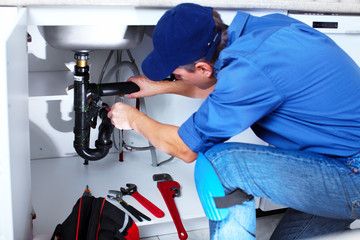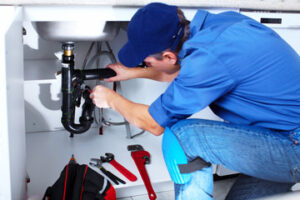
Plumbing Fundamentals You Need To Know
Plumbing is the transportation of fluids. Various kinds of plumbing equipment and fixtures are used to carry fluids. These include pipes, valves, plumbing fixtures, tanks, and other apparatuses. Plumbing is a vital profession for both home and business owners. This article will explain the basic principles of plumbing. If you have any questions about plumbing, don’t hesitate to get in touch with our service department. We’re always happy to answer your questions! And remember that plumbing is the best career choice if you’re looking for a challenging and satisfying career.
 Plumbing is a vital part of any construction plan. It is essential for regulating water consumption and ensuring no waste. It also protects against mold and rot. Plumber has been an essential part of homes and business structures since ancient times, but the industry has grown by leaps and bounds. Plumbing is essential to our daily lives, and it’s an industry thriving. Its experts are highly experienced and work efficiently to help you with any plumbing emergencies.
Plumbing is a vital part of any construction plan. It is essential for regulating water consumption and ensuring no waste. It also protects against mold and rot. Plumber has been an essential part of homes and business structures since ancient times, but the industry has grown by leaps and bounds. Plumbing is essential to our daily lives, and it’s an industry thriving. Its experts are highly experienced and work efficiently to help you with any plumbing emergencies.
In its simplest form, plumbing involves installing and maintaining pipes, fittings, sinks, faucets, drains, and water heaters. Early plumbing systems used technology, but it wasn’t until the mid-nineteenth century that the number of plumbing installations became substantial. Even if water-using equipment was not widespread, plumbing services are crucial in today’s society.
Water pressure is another factor affecting water flow in a plumbing system. Water pressure limits the height at which water can be distributed, but water friction limits its maximum flow rate. If you have a high water bill, this could be the cause of the problem. In either case, plumbing professionals are essential to ensuring that your home is safe and comfortable. It’s never too late to schedule an appointment. You can always consult a specialist for a free quote.
Obtaining a plumbing license doesn’t require a college education. You need specialized training and knowledge in the field. You can obtain your license through an apprenticeship program, trade school, community college, or learn-while-you-earn apprenticeship. If you have the drive, you can work your way up to being a supervisor or manager or even start your own plumbing company. College degrees in plumbing may open doors for you in other fields, including building information modeling and computer-aided design.
The size of your sanitary drain will depend on how many fixtures you have. Generally, a house drain should be four inches in diameter. House drains are often made of cast iron, vitrified clay, plastic, and lead. Drain water vent piping can also cause a leak, so it’s important to keep an eye on it. Signs of a leak can include damp or moldy ceilings and rooms. Leaky drains can even cause structural damage.
The history of plumbing can be traced back to ancient times. The first plumbing systems were fashioned of lead. Lead pipes were used in ancient Rome to transport water. Nowadays, pipes and water supply systems are made of metal, steel, or plastic. Most plumbing tasks are related to the water supply. Water supply plumbers are experts at installing water systems. Drainage plumbers specialize in securing stormwater and laying drains. They also install sewage pipes.
New construction sites require plumbers to complete the plumbing installation. Plumbing consultants create plans and document the necessary plumbing systems for the project. Licensed plumbers install the pipes and determine where they should be installed. Plumbing consultants also design piping systems and provide recommendations. They are an integral part of any new construction site. There are three different phases of construction. Plumbers install vents, sewage systems, and water supply lines in the rough phase. Then they complete the installation and connection work.
People faced many challenges in the early stages of development, including lack of water and waste removal. The basic water and wastewater removal systems required as much concern as the water supply.
Homeowners can prevent most of these common plumbing problems by following simple steps. First, they should avoid flushing hair or other foreign objects down drains. Using a filter in the kitchen drain will prevent these clogs from forming. They should also be careful not to pour grease or other materials down the sink drain. They should also avoid flushing anything but toilet paper or waste. Flushable wipes and other waste products are common clog-causing products in municipal sewer systems.
